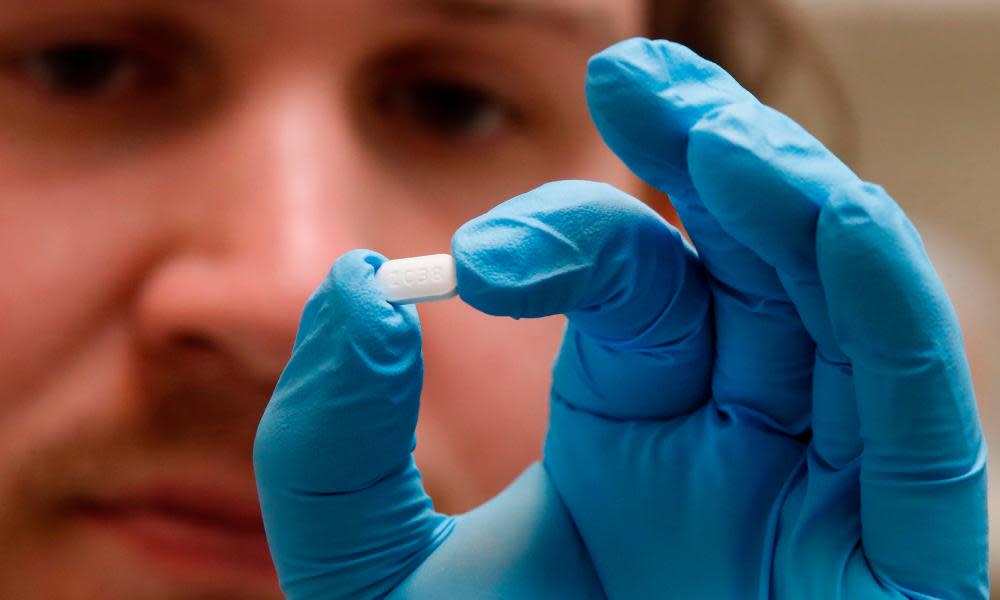WHO to resume hydroxychloroquine trial after earlier halt over safety concerns

The World Health Organization will resume clinical trials of an anti-malaria drug researchers hope may treat Covid-19, after a study of the drug published in May by a major medical journal prompted them to halt trials due to safety concerns.
The paper, published in the Lancet, said hydroxychloroquine was associated with higher mortality rates and higher rates of heart problems in Covid-19 patients in hospitals around the world. The finding prompted the World Health Organization’s director general, Tedros Adhanom Ghebreyesus, to announce the hydroxychloroquine arm of its Solidarity global clinical trial would pause while the study and other findings were reviewed.
Related: Governments and WHO changed Covid-19 policy based on suspect data from tiny US company
But serious questions about the study were raised by scientists around the world and by the Guardian, with data discrepancies highlighted and questions raised about how the study collected data from 96,000 patients across hundreds of hospitals. Major hospitals denied being connected with the database , which is managed by a company called Surgisphere. The chief executive of the company, Dr Sapan Desai, is also co-author of the Lancet paper.
On Wednesday the Lancet published an expression of concern about the paper, and and said the co-authors of the study who were not from Surgisphere had commissioned an independent audit into the provenance and veracity of the data. A Lancet spokeswoman said: “All research articles published in the Lancet journals undergo independent, external peer review, including statistical review.”
A Guardian investigation published on Thursday revealed serious flaws in the database and raised questions about claims made by Desai about how it works. On Twitter the editor of the Lancet, Richard Horton, described it as “an important investigation”. On Friday, Adhanom Ghebreyesus said the World Health Organization had reviewed the Lancet study and other findings about hydroxychloroquine and had determined it was safe for its trials to continue.
Related: How were medical journals and WHO caught out over hydroxychloroquine?
“The executive group received this recommendation and endorsed the continuation of all arms of Solidarity trial including hydroxychloroquine,” he said. The World Health Organization emphasised there is still no evidence hydroxychloroquine, or any drug, is effective in treating or preventing Covid-19. Infectious diseases experts have repeatedly emphasised the need for strong studies before treatment decisions are made.
Hydroxychloroquine trials around the world were halted due to the Lancet paper, including the Australasian Covid-19 trial (Ascot) trial. On Thursday the Ascot principal investigator, associate professor Steven Tong, said the governance committees for the trial recommended that it now continue.
“The trial steering committee for Ascot strongly supports the ongoing need for data from randomised clinical trials in order to clarify the efficacy and safety of hydroxychloroquine in patients hospitalised with Covid-19,” he said.
“Randomised controlled trials are considered the ‘gold standard’ when it comes to testing treatments in humans as they remove any bias, therefore providing the robust evidence that’s required to make safe and informed decisions about the ongoing use of a treatment.”

 Yahoo News
Yahoo News 
